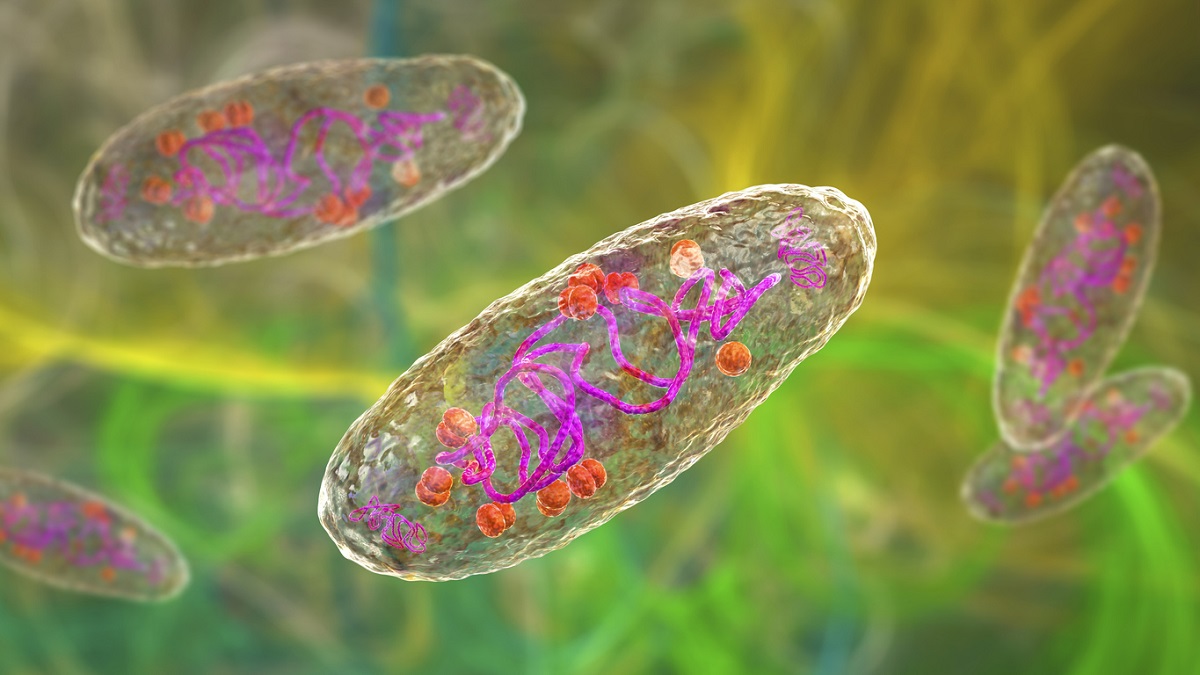
Students Develop "Lock" To Prevent GMs Turning Into Invasive Species
September 30, 2021| |
A group of students from the Leiden University in The Netherlands developed a "lock" to decrease the chances of genetically modified organisms (GMOs) turning into invasive species when released into the environment. The technology is their entry to this year's iGEM biology competition.
The Double Plasmid Lock (DOPL LOCK) was created with the idea of distributing the foreign genetic material of the GMO between two separate DNA plasmids. Each plasmid has its own toxin, with each having the antitoxin of the other. The students explained that this will ensure that the cell only remains alive if the plasmids are together and that the individual plasmid cannot be transferred into another bacteria. To summarize, one plasmid cannot survive without the other and will serve as a "lock" that will make it impossible for GMOs to outcompete other organisms in the open environment. The objective is for researchers to make safe use of genetic modification without products turning into invasive species.
Learn more about the DOPL LOCK from Leiden University.
| |
You might also like:
- Customizable Molecular Scissors for Tailoring Plant Genomes
- UK-Based Brackenburn Turns Invasive Plant into Biofuel
- Pocket K No. 59: Plant Breeding Innovation: TALENs
Biotech Updates is a weekly newsletter of ISAAA, a not-for-profit organization. It is distributed for free to over 22,000 subscribers worldwide to inform them about the key developments in biosciences, especially in biotechnology. Your support will help us in our mission to feed the world with knowledge. You can help by donating as little as $10.
-
See more articles:
-
News from Around the World
- FAO Urges Agri-food Stakeholders to Upscale Science and Innovation to Preserve Biodiversity
- African Coalition for Communicating Genome Editing Launched as Bioscience Symposium Concludes
- Researchers Find Genetic Tools to Develop Potatoes with Improved Resistance to the Colorado Potato Beetle
- Machine Learning Reveals Important Genes to Help Corn Grow with Less Fertilizer
- Queensland Researchers Discover Genes for Sorghum Grain Size
- Capacity Building for COPMOPs Continues for Asian Countries
- Researchers Map Key to Energy-Making Process in Plants; Help Engineer High-Yielding, Stress Resistant Crops
- Scientists Debut Coffee Developed Through Cellular Agriculture
- Students Develop "Lock" To Prevent GMs Turning Into Invasive Species
-
Research Highlights
- Study Shows Usefulness of Sugarcane Mosaic Virus Vector for Rapid Screening of Maize Genes
-
Plant
- New Book on Genome Editing Tools and Gene Drives
- UK Poised to Unlock Power of Gene Editing
-
Read the latest: - Biotech Updates (January 21, 2026)
- Gene Editing Supplement (December 17, 2025)
- Gene Drive Supplement (February 22, 2023)
-
Subscribe to BU: - Share
- Tweet

